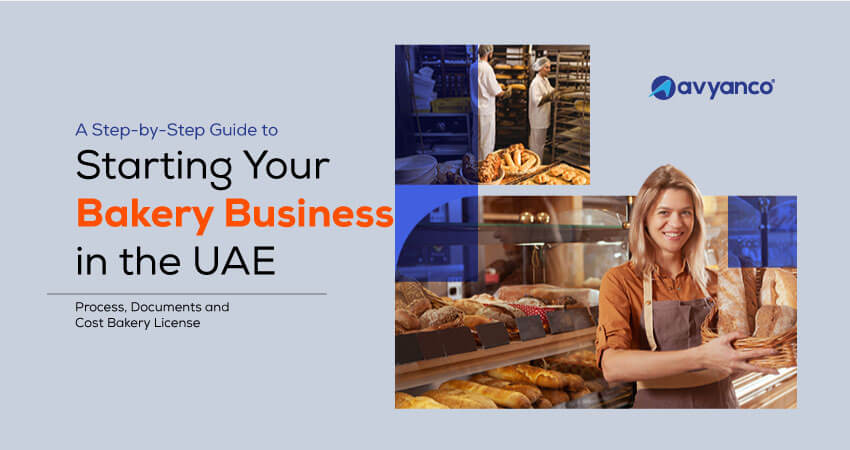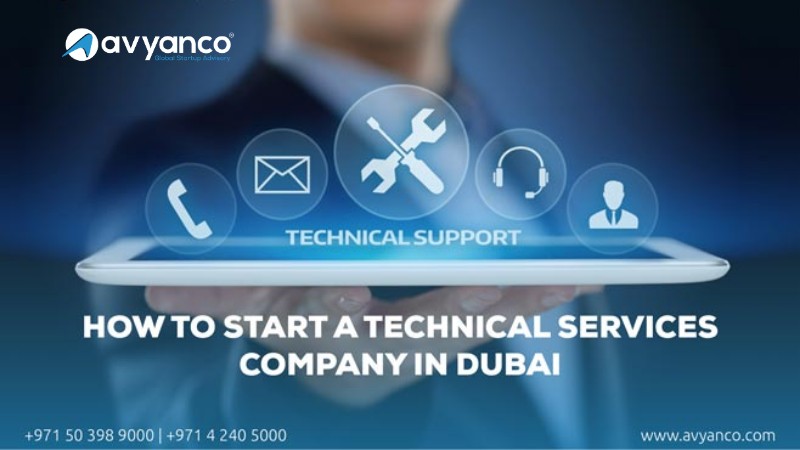The UAE is known for its various culinary choices and multiculturalism. From regional treats like Basbousa and Baklava to international favorites like buttery croissants to cakes, you can get a broader customer base for your goodies with a bakery license in Dubai.
Moreover, the bakery business license can help you get modern facilities and financial perks for your business in the UAE. So, getting a bakery trade license in Dubai isn’t just a legal prerequisite; it could lead to your success in Dubai.
In this guide, we’ll find out how to get a bakery license in Dubai, along with its costs and documentation. Let’s get started!
Process to Start a Bakery Business in Dubai
Starting a bakery business in Dubai needs careful planning and relevant legal permits. Go through the following steps as your guide to opening a promising bakery:
Step 1: Develop a Business Plan
To start with, you must have a detailed business plan. It should outline every aspect of your bakery. Here are a few factors your plan can focus on:
- Your target audience
- Your competition
- The products you’ll offer
- Costs of equipment, rent, licenses, and personnel
- Organizational structure
Step 2: Choose Bakery Location
In Dubai, you can set up your bakery on the mainland or in a free zone. Each location has its unique perks for starting a bakery business in Dubai. For example, while a free zone bakery is limited to its designated area, a mainland bakery can conduct business anywhere in the UAE.
To decide the location for your bakery, consider key factors such as foot traffic, accessibility, and competition in the vicinity. Once you’ve chosen the site, ensure the physical space meets the infrastructural requirements for a bakery, such as proper ventilation, electrical outlets, and plumbing. You’ll need to lease physical space for your bakery. So, set lease terms that go with your budget and growth plans.
Step 3: Determine a Company Structure
The UAE lets entrepreneurs pick from many legal structures. So, carefully consider which one aligns best with your business goals and ownership preferences. Common options include:
- Private/Public Shareholding Company
- Limited Liability Company
Step 4: Register Your Trade Name
You must register a unique trading name with the concerned authorities. An excellent name for your bakery is vital for its recognition and success in the market. So, select it thoughtfully.
Your bakery’s trade name should reflect its identity. To prevent legal issues, ensure your bakery name is not already used in the UAE and follows the country’s trade naming rules.
Step 5: Apply for a Trade License
With your business plan, bakery location, legal structure, and trade name in place, let’s get a bakery license in Dubai. To start this process, select the relevant trade license for your bakery. Next, submit your application to the concerned authorities. They will check it. Upon approval, you’ll get your bakery license in Dubai.
Note that license application is a crucial process that must be done carefully. Avynaco’s business setup consulting experts can help you with choosing the appropriate license type and submitting complete documents for your bakery.
Step 6: Obtain Additional Approvals
You may need additional approvals to run a bakery business in Dubai. It depends on the scope and nature of your bakery operations. One of the aspects could be the Food Safety Department’s permit. Concerned officials will inspect if your bakery follows hygiene and food handling rules. Similarly, if you plan to serve beverages or offer seating for customers, you may need approvals from the relevant officials.
Documents Requirement for Opening a Bakery Business in Dubai
When opening a bakery business in Dubai, you must submit a proper set of documents. Here is a list of essential documents:
- Passport copies of all business owners/partners
- Initial approval by the DED
- Memorandum of Association (MoA)
- Payment receipt of trade name reservation
- NOC from the Food and Safety Department
- A copy of the lease agreement for your bakery premises
- Ejari certificate
Note that you may need more paperwork based on your bakery’s location, size, and nature. Our experts will ensure you have all the documents for a smooth and legally compliant start to your bakery in Dubai.
Cost of Opening a Bakery in Dubai
The cost of starting a bakery in Dubai depends on the bakery location, bakery license & permits, name reservation, the number of visas needed, and more. The bakery license issuance in Dubai costs around AED 12,500.
Plus, the expenses include Tasheel fees for trademark registration (approx. AED 620), initial approval (AED 115), and foreign trade name fees (AED 2,000). You may also incur expenses for MOA notarization, Ejari, a company stamp, and an immigration card.
Start Your Bakery in Dubai
Transform your baking skills into a successful bakery with the right guidance and determination. Partnering with Avyanco Business Setup Consultancy simplifies starting a bakery business in Dubai, from getting you a bakery license in UAE to office spaces.
Our seasoned experts can also assist you with the updated tax regime, specifying a 9% fixed statutory tax. With our business setup expertise and your baking skills, your bakery is bound to be successful.
FAQs on How to start a bakery in Dubai
How long does it take to obtain a bakery license in Dubai?
The timeline depends on your chosen location and the status of your document completion. Usually, it takes a few weeks to get a bakery license in Dubai.
Can foreign nationals own a bakery in Dubai?
Yes, foreign nationals can own bakeries in Dubai free zones.
Can I sell my bakery products online or through delivery services in Dubai?
Yes, you can offer online sales and delivery services for your bakery, but you must follow e-commerce and delivery regulations.
Can I import ingredients or equipment for my bakery from other countries?
Yes, you can import ingredients and equipment. But you must follow customs and import regulations and have the necessary import permits.
Can I hire local staff for my bakery, or can I employ expatriate workers?
You can employ both local and expatriate staff. But they must have the appropriate work permits and meet visa requirements.









